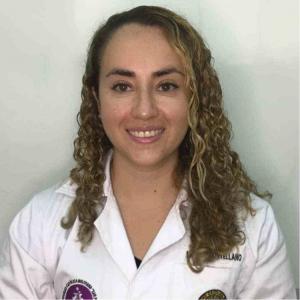About me
Vision statement:
As a woman in science in Bolivia and having been the founder and chair of OWSD Bolivia for four years, I have understood that OWSD's mission and vision go beyond networking or outreach activities. OWSD represents a change in Latin American society and culture, where science, knowledge, and sisterhood among women scientists are valued. It also encourages and empowers young people, boys, girls, and adolescents, to engage in science, creating the scientific ecosystem that many countries in the Global North have, helping their society value science as a priority for their countries. As women, we are always role models: as mothers, sisters, aunts, grandmothers, but not always as leaders, innovators or changers; OWSD is committed to the kind of role model we want to project, and that projects the society we want to have.
I was born in Camiri, Bolivia. I earned her bachelor’s (licenciatura) degree in Biotechnology from the Universidad Nacional de Rosario (Argentina). I pursued doctoral studies in Biological Sciences at the Faculty of Biochemical and Pharmaceutical Sciences of the Universidad Nacional de Rosario, Argentina, focusing on the physico‑chemical and functional properties of food proteins, including quinoa proteins. My doctoral work was to investigated protein–polysaccharide interactions, gelation behavior, aggregation, and structure-function relationships.
Currently, I am the Director of Biotechnology Engineering at the Universidad Católica Boliviana “San Pablo” in Santa Cruz, Bolivia. I also held roles in academic administration and leadership, including being part of the Research Ethics Committee and Coordinator of the Center for Biotechnology Research (BIOCEN) of the university.
I was the founder of the Bolivia Chapter of the Organization for Women in Science for the Developing World (OWSD) and the first chair from 2021 to 2025.
I am a member of the Global Young Academy (GYA) since 2025, and a young affiliate member of the The World Academy of Sciences (TWAS) since 2025.
My research focuses on bioactive compounds, protein structure-function relationships, enzyme applications, and biotechnological processes in health, food, and industry contexts.
I published work on the antioxidant, antimicrobial, and nutritional characterization of under‑studied tropical fruits, seeking to valorize native biodiversity through biochemistry and biotechnology.
She co‑authored studies on remote and internet‑enabled science education, such as the use of lab‑on‑a‑chip and cloud‑controlled microscopy to broaden access to hands‑on biology learning in underserved Latinx communities.
My work also includes advancing participatory, project‑based science curricula in Latin America, contributing to pedagogical innovation in life sciences education.
In protein science, I has studied how interactions of quinoa proteins with carrageenan (a polysaccharide) affect aggregation, gelation, microstructure, and functional properties such as solubility and thermal stability.
In 2019, Natalia Montellano was awarded the Early Career Fellowship from OWSD-UNESCO for young women scientists in developing countries.
I have been recognized in Bolivia as one of the women leaders in science and technology by the Premio Joven, Juventud Empresa, TOYP Santa Cruz and TOYP Bolivia.
My service extends to national science bodies: she has been a member of the Scientific Research Council of Bolivia’s National Academy of Sciences (Santa Cruz department).
I have received various honors such as the Plurinational Science and Technology Award (Bolivia) and recognition by the Bolivian Chamber of Deputies, among others.
I have participated actively in science outreach and volunteer efforts, promoting STEM careers, science clubs, and mentoring young scientists in Bolivia and Latin America.
My work bridges fundamental research (on proteins, bioactive compounds, soft matter) with applied, socially relevant goals: enhancing regional biodiversity utilization, democratizing science education, and supporting women in STEM. Through my leadership in OWSD and my roles in institutional governance, I contribute to policies, networks, and capacity-building that strengthen scientific infrastructure in Bolivia.
My career exemplifies how a scientist can combine deep technical expertise with educational innovation and advocacy. As a role model and change agent, I am helping to shape a generation of Latin American researchers who are scientifically rigorous, socially conscious, and globally connected.
Other Memberships/Affiliations
Degrees:
Cloud-controlled microscopy enables remote project-based biology education in underserved Latinx communities. Heliyon. https://doi.org/10.1016/j.heliyon.2

